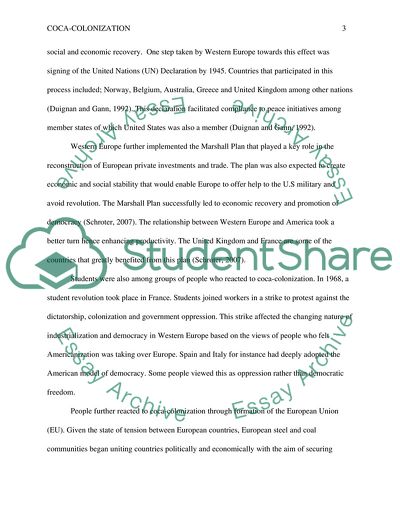Cite this document
(Coca-colonization in Western Europe Essay Example | Topics and Well Written Essays - 3000 words, n.d.)
Coca-colonization in Western Europe Essay Example | Topics and Well Written Essays - 3000 words. https://studentshare.org/sociology/1860993-how-did-people-in-western-europe-react-to-coca-colonization-after-1945
Coca-colonization in Western Europe Essay Example | Topics and Well Written Essays - 3000 words. https://studentshare.org/sociology/1860993-how-did-people-in-western-europe-react-to-coca-colonization-after-1945
(Coca-Colonization in Western Europe Essay Example | Topics and Well Written Essays - 3000 Words)
Coca-Colonization in Western Europe Essay Example | Topics and Well Written Essays - 3000 Words. https://studentshare.org/sociology/1860993-how-did-people-in-western-europe-react-to-coca-colonization-after-1945.
Coca-Colonization in Western Europe Essay Example | Topics and Well Written Essays - 3000 Words. https://studentshare.org/sociology/1860993-how-did-people-in-western-europe-react-to-coca-colonization-after-1945.
“Coca-Colonization in Western Europe Essay Example | Topics and Well Written Essays - 3000 Words”. https://studentshare.org/sociology/1860993-how-did-people-in-western-europe-react-to-coca-colonization-after-1945.


